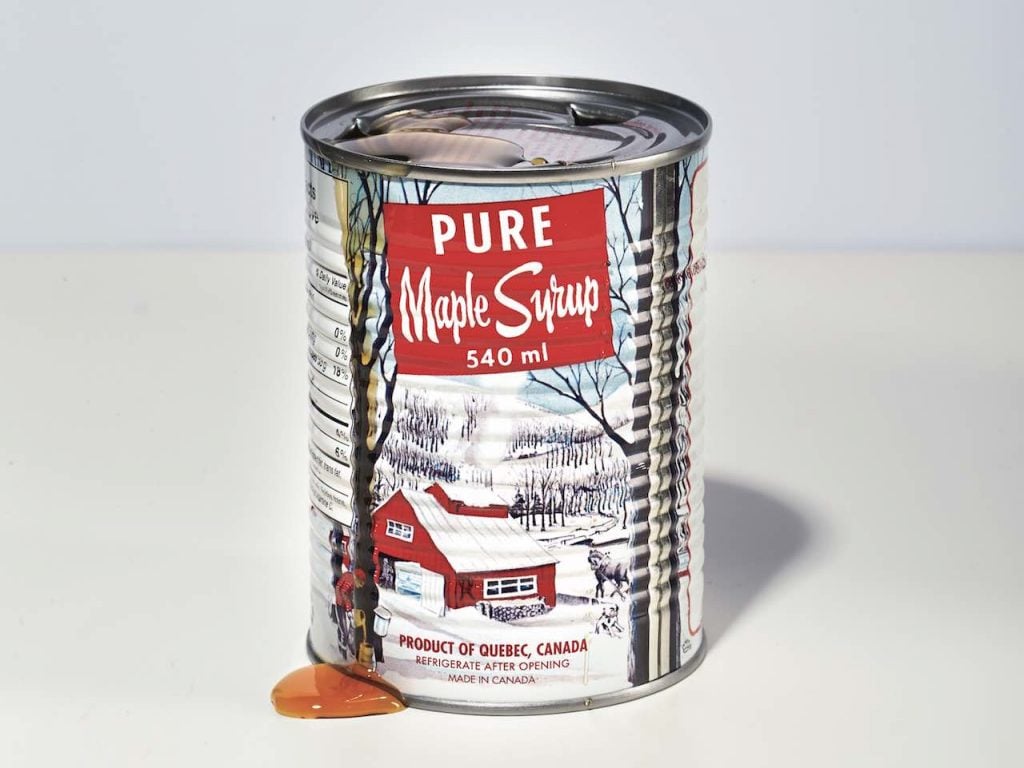There are many items in our refrigerator that we don’t think twice about storing there. However, there are also items that we may not realize should be refrigerated after opening. Here are a few examples of why you should refrigerate certain items after opening them:
Items like salad dressing, ketchup and BBQ sauce can start to spoil quickly once opened if left out at room temperature. Refrigerating these items after opening will help to prolong their shelf life.
Mayonnaise is another food item that spoils quickly once the jar has been opened.
If you’ve ever left mayo out for too long, you know how unpleasant it can be when it turns. Mayonnaise should always be refrigerated after opening to prevent this from happening.
Open cans of fruits and vegetables can also start to go bad if left unrefrigerated.
The contents of the can are exposed to oxygen and will start to deteriorate more quickly than if they were still in the sealed can.
If you’re like most people, you probably don’t think twice about pulling a can or bottle out of the fridge and popping it open. But did you know that there are actually some food items that should be refrigerated after opening? Here’s a look at why refrigerating after opening is important for food safety:
1. Refrigeration slows down bacterial growth. Bacteria thrive in warm, moist environments – like the inside of a can or bottle that’s been sitting out at room temperature. By putting these items in the fridge, you’re slowing down the growth of bacteria, which means they’ll stay safe to eat for longer.
2. Refrigeration helps keep food fresh. Have you ever noticed how quickly foods start to spoil when they’re left out at room temperature? That’s because warmer temperatures cause food to deteriorate more rapidly.
So if you want your food to stay fresher for longer, stick it in the fridge after opening.
3. Refrigeration prevents mold growth. Mold loves warm, humid conditions – just like bacteria.
So if you’re storing any opened food items in a place that isn’t refrigerated, chances are good that mold will start to grow on them eventually. To prevent this from happening, always put opened items in the fridge as soon as possible.
4. Refrigeration keeps foods from drying out.
Have you ever opened a can of soup only to find that it’s dried up and crumbly? Again, this is due to warmer temperatures causing moisture to evaporate from the food over time.
Why Do Americans Refrigerate Their Eggs and Most Other Countries Don't?
Why Should I Refrigerate My Food After Opening It
It’s important to refrigerate food after opening it because doing so will help to keep the food fresh and prevent it from going bad. When food goes bad, it can cause serious illness. Refrigeration helps to slow down the growth of bacteria on food, which can make people sick.
It’s especially important to refrigerate perishable foods like meat, poultry, fish, eggs and dairy products. So if you’ve opened a can or jar of food, be sure to transfer the contents into a clean container and then pop it into the fridge.
How Long Will My Food Last After Opening It
Assuming you’re talking about unopened, commercially packaged food:
“Use by” dates on food products are not required by Federal law with the exception of infant formula and some baby food, however many states have their own laws. The “use by” date is the last day that the product will be at its highest quality and freshness.
After this date has passed, it does not mean that the product is unsafe to consume, but rather that it may have lost some of its flavor or texture.
The term “sell by” is used to tell store employees when they should take an item off the shelves. It does not necessarily indicate when the product expires.
For example, a carton of milk may say “sell by Dec 21.” This means that after December 21st, the store should no longer sell that particular carton of milk because it would be past its peak freshness, even though it would still be safe to drink for several more days.
“Best if used by (or before)” is similar to “use by.”
The manufacturer wants you to experience the best possible taste and quality so they recommend consuming the product before a certain date. After this date has passed, it does not mean that the product is unsafe to consume; however, it may have lost some of its flavor or quality.
For perishable foods such as meat, poultry, eggs and dairy products: If purchased frozen, keep frozen until ready to use.
If purchased refrigerated (below 40°F), use within 2-3 days for best quality or freeze immediately upon arrival home from grocery store.. Once opened/prepared/cooked refrigerate promptly and use within 3-4 days for best quality or freeze immediately.
What are the Benefits of Refrigerating My Food
There are many benefits to refrigerating your food. Refrigeration helps to keep food fresh and prevents the growth of bacteria. It also helps to preserve the flavor of your food.
Additionally, refrigeration can help to extend the shelf life of some foods.
What Happens If I Don’T Refrigerate My Food After Opening It
If you don’t refrigerate your food after opening it, the food will spoil and become inedible. The temperature of the food will cause bacteria to grow, which will make the food unsafe to eat. The food may also start to smell bad or look discolored.
If you have any doubts about whether or not the food is still safe to eat, it’s best to throw it away.


Credit: www.chatelaine.com
Conclusion
Assuming you would like a summary of the blog post titled “Why Refrigerate After Opening”:
The author begins by discussing how we have been taught to refrigerate foods after opening them since childhood. She then goes on to explain that this is actually not always the best option, and provides several examples.
For example, she explains that tomatoes actually taste better when they are left at room temperature.
She provides scientific explanations for why this is the case for certain foods, and offers tips for how to store different types of food properly. In conclusion, she encourages readers to experiment with storing foods in different ways in order to find what works best for them.

